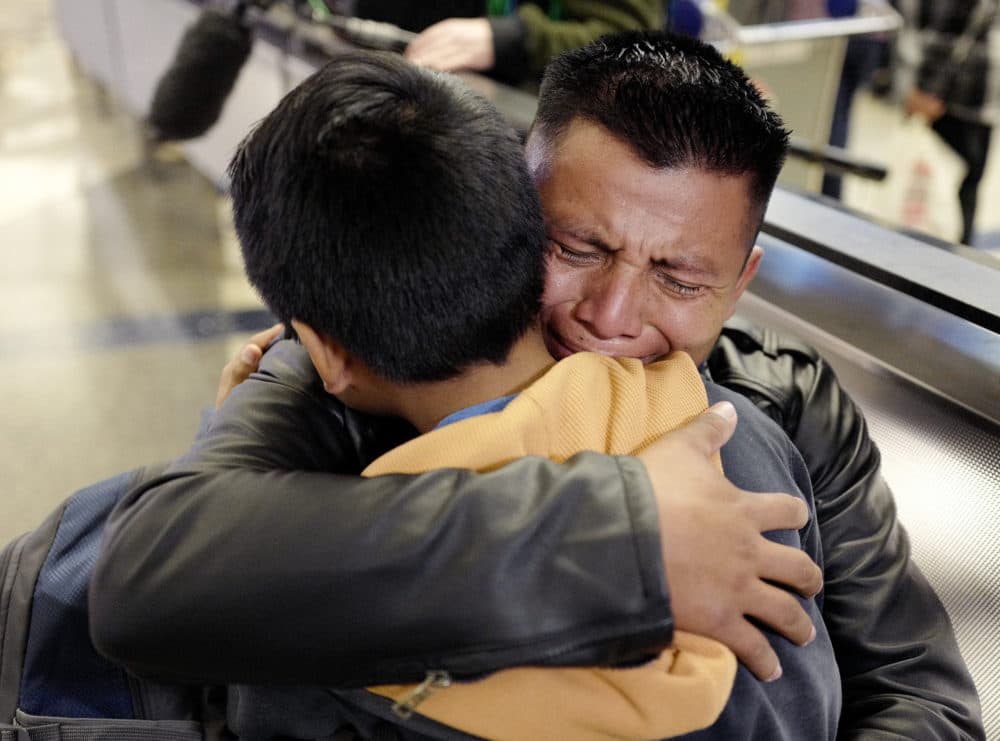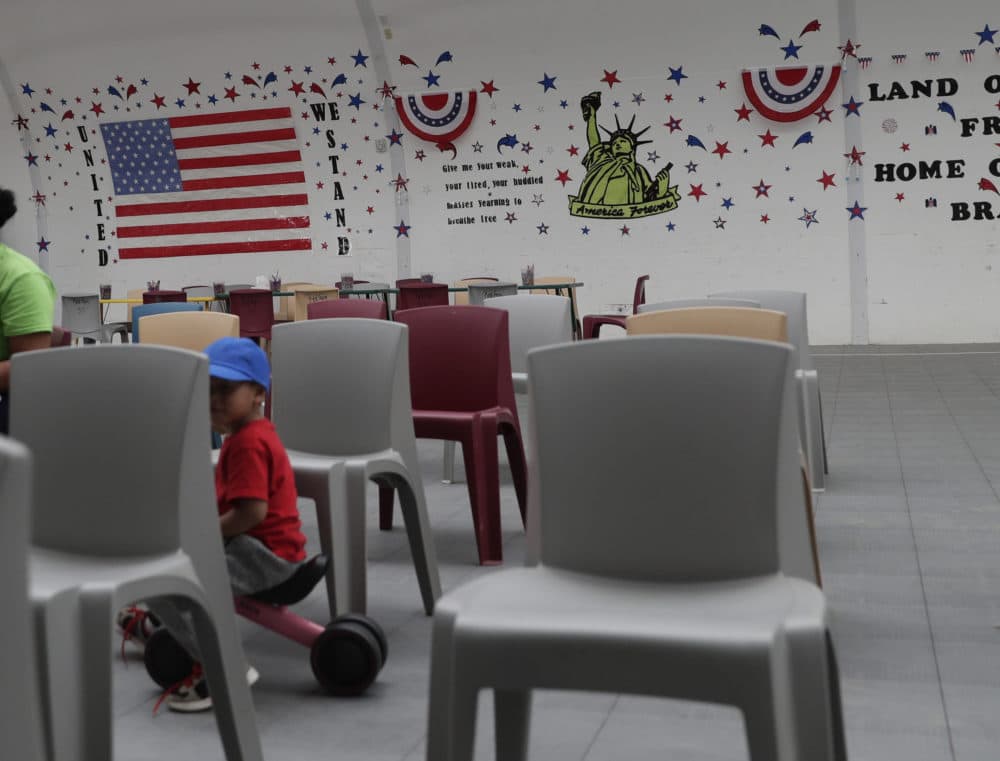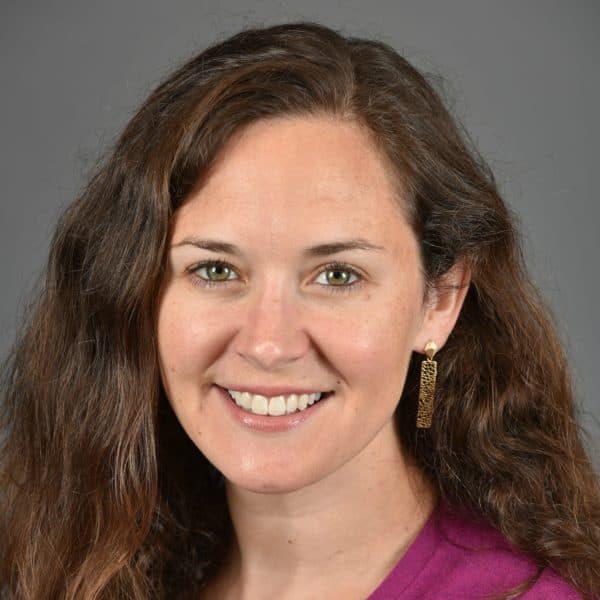Advertisement
Commentary
Forced Family Separation Isn't Just Traumatic. It's Torture

It was 10 a.m. on a Tuesday. My children in Boston were doing what most young children do at 10 a.m. on a weekday – exploring new concepts in school, climbing a jungle gym or perhaps sneaking an extra fruit roll-up. But on that day in October 2018, I was in the South Texas Family Residential Center in Dilley, Texas, the largest immigrant family detention center in the United States.
There, I saw a 9-year-old boy lying listlessly in his mother’s arms as she attended a session about the U.S. asylum process. Another child, no more than 7 years old, played quietly in the corner of the room where her mother and I met. She listened while her mother recounted the horrific physical and sexual abuse she had endured in Guatemala. Another 12-year-old boy preferred to watch TV in the nearby playroom while his mother met with me, but both made sure they could always see one another. All of these young children and their parents were clearly grappling with severe trauma — trauma from persecution in their home countries, as well as trauma experienced at the hands of the U.S. government.
As a practicing pediatrician, I had been sent to Dilley as a volunteer for Physicians for Human Rights (PHR) to evaluate asylum-seeking women who had not passed their “credible fear interview.” This is the critical first step in the process of applying for asylum in the United States. If you do not convince an asylum officer of your credible fear of torture or persecution if you were to return home, you cannot proceed with the asylum process and are almost always promptly deported.
We cannot let this crime and the quest for justice for its survivors be drowned out by the outrage of the day...
I learned that each of these women had to participate in these sensitive interviews within mere days of having their children suddenly and inexplicably taken from them during the height of the family separation policy.
The interview transcripts I reviewed at Dilley often read like this:
Asylum Officer: “Why did you decide to come to the United States?”
Mother: “Please, where is my son/daughter?”
You don’t have to be a clinician to appreciate how incredibly inappropriate and ineffective it is to force asylum seekers to undergo an interview of that magnitude during a time of profound mental distress, confusion and anguish.

Tragically, these were not isolated incidents. More than 5,500 children were separated from their families by the U.S. government from 2017 to 2019. And this week we learned more about the long-lasting psychological harm that these families experience from the family separation policy.
A PHR report published Tuesday systematically analyzed the psychological evaluations of 17 adults and nine children who had been separated, including two of the mothers in Texas who I evaluated. PHR found that all of the children and all but two of the adults met diagnostic criteria for post-traumatic stress disorder (PTSD), depression or anxiety. Notably, the symptoms persisted months or a year after these kids and their parents had been reunited. After careful evaluation of the circumstances and effects of such policies, PHR boldly called out these cases of family separation for what they are: torture.
The United Nations Convention against Torture, which the United States has ratified, defines torture as an act which causes severe physical or mental suffering, done intentionally, for the purpose of coercion or punishment, by a state official or with state consent. Clearly, the U.S. family separation policy meets those criteria. I stand with PHR and call on the government to abide by U.S. and international law. This means providing reparations to the families affected by this heinous policy, including providing access to high-quality mental health treatment.
It also means acting in the best interest of the child, the human rights imperative at the heart of the United Nations Convention on the Rights of the Child (CRC). Adopted in 1989, the overarching message of the CRC is that all actions involving children — from health to education to asylum — must have the best interests of the child as the primary consideration. This should not be controversial or difficult to endorse. And yet, every single country in the world except the United States has ratified the CRC. Instead, the U.S. government expressly violates children’s rights, acts with impunity and then expects to be able to lecture other countries about human rights.
I try to put myself in these parents’ shoes, daring to imagine what it would be like if my own children were suddenly taken away from me...
As a pediatrician, a mother, a human, I refuse to allow family separation to wash over me with the rest of the global tidal wave of atrocities we hear about daily. We cannot let this crime and the quest for justice for its survivors be drowned out by the outrage of the day — particularly when family separation is still happening.
I try to put myself in these parents’ shoes, daring to imagine what it would be like if my own children were suddenly taken away from me, with no explanation, not knowing where they are, if I will ever see them again, or if they are even alive. It is unfathomable.
These parents risk their lives by making the heart-wrenching decision to flee their homes and trek to the United States. They are guided by the sole desire to act in the best interests of their children. It’s time our government did the same.
